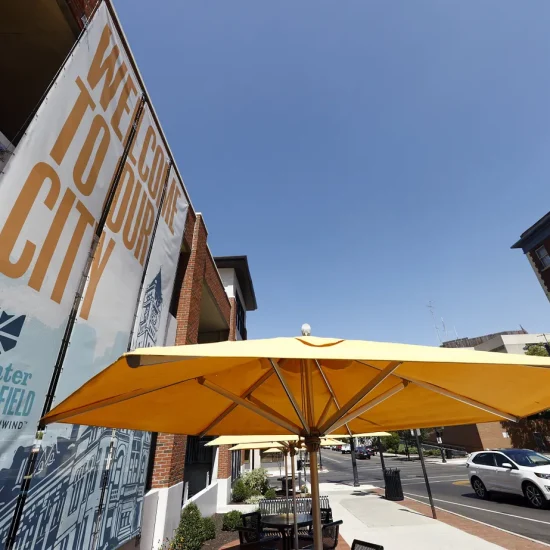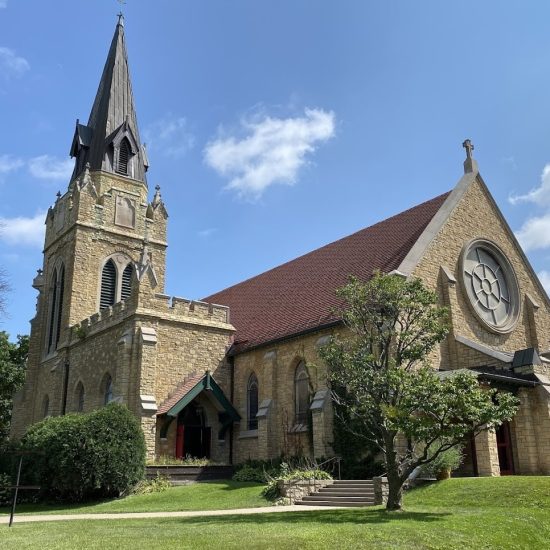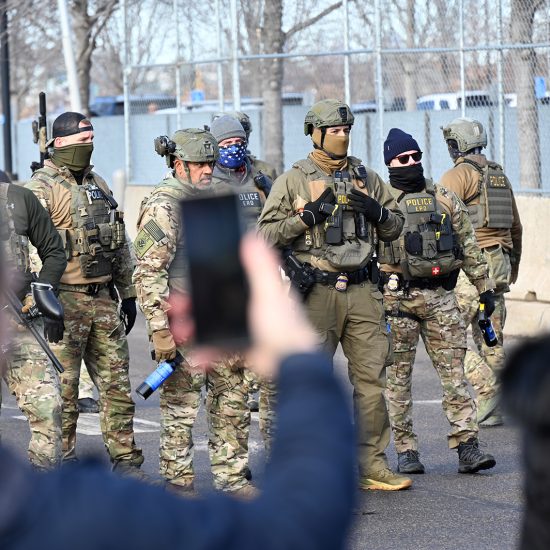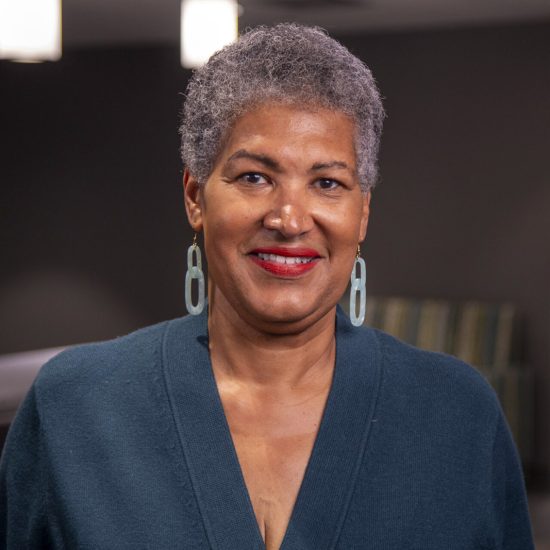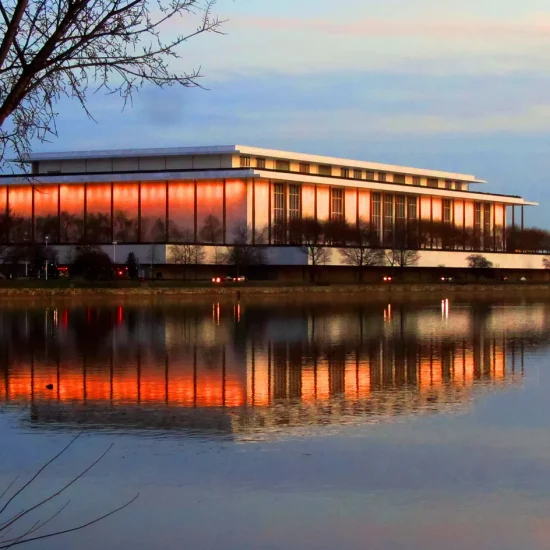JEFFERSON CITY, Mo. — Pastor Elisey Pronin watched as Russian troops drove tanks and carted military equipment across Ukraine’s eastern border into the Lugansk region and into his town of Pervomaysk.
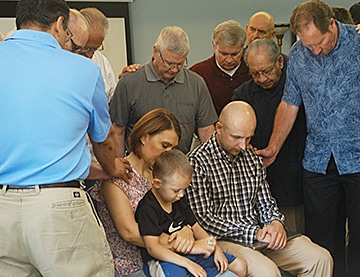 In just a few short weeks last July, Pervomaysk was destroyed, Pronin’s church — Revival Church — burned and his family threatened as Ukrainian separatists took over the region.
In just a few short weeks last July, Pervomaysk was destroyed, Pronin’s church — Revival Church — burned and his family threatened as Ukrainian separatists took over the region.
Pronin has been sharing the story of his church and ministry in Baptist churches throughout Kansas and Missouri for the past several weeks to garner support for believers and churches in the Ukraine. He spoke to about 25 Concord Baptist Association pastors in Jefferson City on May 27.
Trouble began brewing in the former Soviet block country in November 2013 when then-President Viktor Yanukovych sought to strengthen ties with Russia and to back away from the European Union.
His stand sparked demonstrations in the Ukrainian capital, Kiev, among citizens who wanted a closer relationship with the West. The protests led the government to pass stricter anti-protest laws, which created more violence.
Then in February 2014, pro-Russian separates, with help from the Russian military, seized control of the Crimea, on Ukraine’s southern border. Russia annexed the Crimea after that country held a disputed referendum return to Russian control.
Then in April, separatists began targeting cities in Donetsk and Lugansk regions in the Ukraine.
Though Russian leaders still deny any involvement by that country’s military in the Ukraine, Pronin showed slides of tanks and equipment arriving in Pervomaysk. A ceasefire was declared on Sept. 5, but fighting continues between government forces and separatists in the two regions.
His town was quiet and peaceful, Pronin told the pastors. His church was strategically located in the heart of the city, within walking distance for all ages. With about 300 members, the church ministered to the community through social ministries, including food distribution.
It also had strong children and youth programs and provided summer camps for children and youth each year. It offered family ministry for young couples, a rehabilitation center for substance abusers and an international fellowship with a long-term connection to Baptist churches in Kansas.
Pronin’s congregation also was working to plant a church in a nearby community. The new work had already attracted about 30 worshippers.
When separatists took control of Pervomaysk in July, Pronin sent his wife, Oksana, and the couple’s two children to a refugee camp in the western part of the country. He remained in town with several church members to minister to and to share the gospel with as many people as they could.
Though no one wants conflict or wants to be uprooted from home, the war has opened opportunities to share the gospel, Pronin told Concord association pastors.
Only about one-tenth of 1 percent of Ukrainians are evangelicals, he said. “Most did not want to hear the gospel, but because of the war, they were willing to listen,” he added.
When Pronin and church leaders who had stayed behind realized after a couple of weeks that the conflict was not going to end, they began evacuating residents. Only a few thousand of the 40,000 citizens remain in town.
Separatists gave Pronin the opportunity to save his church. He only had to declare his support for their effort. When he refused, they poured gasoline in strategic places and torched the building.
“They think I am an American spy” because he had traveled to the United States several times.
Pronin joined his family and set up a camp in which worship services are held. He and other believers minister to those who live in the camp. In September they baptized several new believers who had come to Christ as a result of their efforts.
Many people living nearby arrive at the camp gates each morning. Pronin and other workers try to provide food, clothing, oil and other supplies whenever possible. They also share their testimony, distribute tracts and offer copies of the New Testament, Pronin explained.
In a brief interview following his presentation, Pronin shared that he became a Christian at 18 years old. That same day, he felt he was to serve God and started “practical ministry” with children and youth. He joined the Pervomaysk church and became youth pastor. He served as associate pastor from 2004 to 2006, when he became senior pastor.
In addition, he has authored several books. He has just completed one on the crisis, which he hopes a publisher will accept soon.
He said he believes God is leading him and his family back to their home country. They cannot return to Pervomaysk because most of the town has been destroyed and the region is unsafe. Most church members have scattered throughout the country.
Instead, he will accept the invitation to become a professor at Lviv Theological Seminary, where he had earned a bachelor’s degree in biblical studies. He also feels led to plant a church in that area and hopes to minister to refugees through the new work. The family will return to the Ukrainian in late July.
Pronin believes the situation will worsen for Christians in the east. “Everything will be worse and worse because of the strong Russian influence…. [Believers] are under pressure…. Evangelical Christians are illegal in that area,” he said.
But, he added, he believes Ukrainians are more open to hear the message of Christ. “People became more open for the gospel…. We should work hard to show people that only God can change the situation,” he said.
“We are returning because we really believe in our ministry…and in the future of the Ukraine.”


